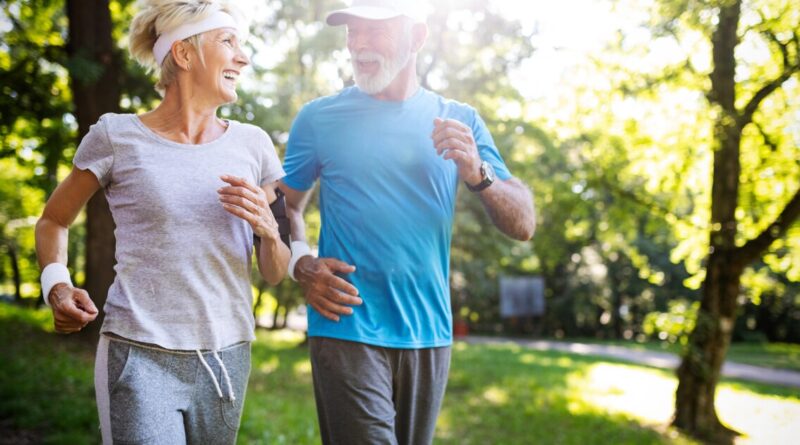5 minutes of extra exercise a day brings heart health benefits
Finding time to exercise each day is a challenge for many people, but a new study of nearly 15,000 men and women found that just five minutes of exercise can get your heart rate up. lowering blood pressure.
An international team of researchers led by the University of Sydney (USyd) and University College London (UCL) found that some movement, such as taking the stairs, cycling or running – even for just five minutes – every day can help reduce both systolic. blood pressure (SBP) by about 0.68 mm Hg and diastolic blood pressure (DBP) by 0.54 mm Hg.
SBP, which is the top number in the BP reading, is related to the pressure in the blood vessels when the heart beats, while DBP, the bottom number, refers to the amount of pressure in the arteries between beats.
“High blood pressure is one of the biggest health problems in the world, but unlike other major causes of heart disease there may be ways to deal with the problem see without medication,” said senior study author Emmanuel Stamatakis, a professor at USyd. director of the ProPASS (Prospective Physical Activity, Sitting and Sleep) Consortium “Finding that an extra five minutes of moderate exercise per day can be associated with significant reductions in blood pressure underlines how short periods of vigorous exercise high intensity movement can be associated with a significant decrease in blood pressure. to control blood pressure.”
Hypertension affects approximately 1.28 billion adults worldwide and is a leading cause of stroke, heart disease and heart failure. And while diet and lifestyle are important to control high blood pressure, as well as medication, exercise can be difficult for many reasons – including limiting the time and conditions of exercise.
In that study, 14,761 people from five countries were tasked with wearing an accelerometer device to measure their activity and blood pressure during the day and night. Daily activities were divided into six categories – sleep, sedentary behavior (sitting), slow walking, brisk walking, standing and vigorous exercise (such as running, cycling, climb the stairs).
Based on the data collected, the team looked at how exchanging one of these six methods for another would affect blood pressure. While they found that, unsurprisingly, replacing sedentary behavior with vigorous exercise had the greatest benefits, it was the time spent doing so that yielded the most surprising results. .
Although the biggest change in blood pressure came from 20-27 minutes of extra exercise — about 2 mm Hg for SBP and 1 mm Hg for DBP — just five minutes a day was enough to change the line.
“Our findings suggest that, for many people, exercise is the key to lowering blood pressure, rather than low-intensity physical activity such as walking,” said first author Dr. Jo Blodgett from the Division of Surgery and Interventional Science at UCL. The news is that regardless of your ability, it does not take long to have a positive effect on blood pressure. many of them can be integrated into everyday routines.
He added: “For those who don’t exercise much, walking still has blood pressure benefits.” But if you want to change blood pressure, putting more demand on the cardiovascular system through exercise will have a big effect. ”
As these studies show, sedentary behavior was negatively associated with SBP and DBP, however, walking and standing did not make things worse – or, ultimately, significantly better . However, if you were to take five minutes of walking up a hill, that would be enough to raise your heart rate and reap the benefits of more vigorous exercise.
In the six sections that the researchers based the model on, sleep was also shown to have a positive effect on blood pressure, suggesting that getting some shut-eye is very important for heart health. your than sitting in bed in front of the television. .
“However, a longer time from sleep behavior to sleep (eg, 2 hours and 50 minutes for SBP, 1 hour and 46 minutes for DBP) was required.” was necessary to reduce BP stress,” the researchers noted in the study. . “Our findings confirm that in free-living environments, more time spent in activities such as exercise has the strongest association with BP, even small changes in daily movement patterns they can lead to clinically meaningful improvement.”
Of course, talk to your doctor before changing your daily routine, or finding other ways to get your heart rate up if activities like cycling, hiking or stair climbing aren’t an option.
The study was published in a newspaper Circulation.
Source: University of Sydney
#minutes #extra #exercise #day #brings #heart #health #benefits
